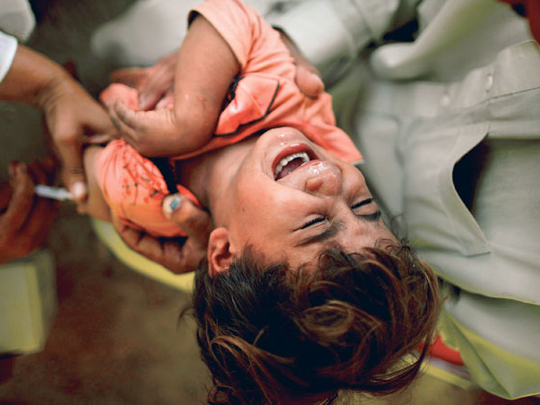
Islamabad: Pakistan said it will clamp down on charities linked to militants amid fears their involvement in flood relief, exploiting anger against the government, will undermine the fight against groups like the Taliban.
Militant charities have moved in swiftly to fill the vacuum left by a government overwhelmed by the scale of the disaster and struggling to reach millions of people in dire need of shelter, food and clean water.
It would not be the first time the government has announced restrictions against charities tied to militant groups. Critics say any banned organisations often re-emerge under new names, with authorities uninterested in stopping their operations.
"The banned organisations are not allowed to visit flood-hit areas," Interior Minister Rehman Malek told Reuters.
"We will arrest members of banned organisations collecting funds and will try them under the Anti-Terrorism Act."
Warning
Pakistani President Asif Ali Zardari warned on Thursday that militants were trying to promote their cause during the floods, similar to what happened after an earthquake in Pakistan Kashmir in 2005.
More than four million Pakistanis have been made homeless by nearly three weeks of floods, making the critical task of securing greater amounts of aid more urgent.
Eight million people are in urgent need of humanitarian assistance. About one-third of Pakistan has been hit by the floods, with waters stretching tens of kilometres from rivers.
The floods have marooned villages and destroyed power stations and roads just as the government had made progress in stabilising Pakistan through offensives against militants.
There were increasing fears of disease outbreaks.
"With over 38,000 reported cases of acute diarrhoea already and at least one confirmed cholera death, the spectre of major cholera outbreaks is real," Professor Zulfiqar Bhutta of the women and child health division at Aga Khan University in Karachi wrote in the Lancet medical journal.
The UN Food and Agriculture Organisation (FAO) said millions of livestock were at risk and at least 200,000 cows, sheep, buffalo, goats and donkeys had already died.
"Livestock in this country are the poor people's mobile ATM," said David Doolan, officer in charge of FAO programmes in Pakistan. "In good times people build up their herds and in bad times they sell livestock to generate cash."
Weather officials said floods could recede in Punjab province but there was a danger of more rain in Sindh province over the next week. These provinces, where the majority of Pakistanis live, have been hit hardest by the floods.
The United States led a stream of pledges of more funds for Pakistan during a special meeting of the UN General Assembly on Thursday.
Survival woes
- 8m people in urgent need of humanitarian assistance
- 38,000 cases of acute diarrhoea reported in flood-hit areas












